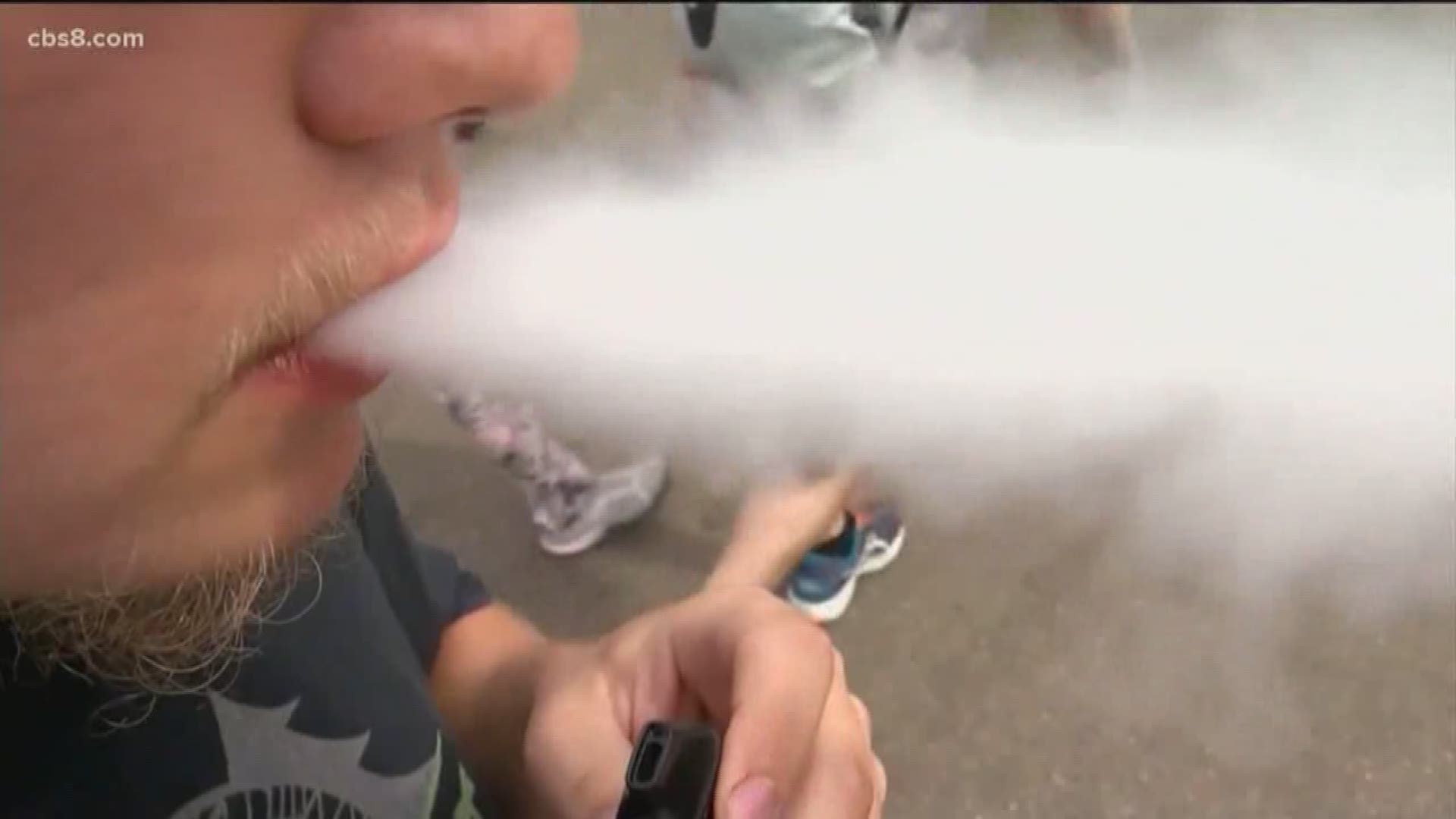SAN DIEGO — San Diego County supervisors today tentatively approved a one-year moratorium on the sale and distribution of electronic smoking devices in unincorporated areas, while also backing a ban on the sale of flavored and smokeless tobacco products.
The board also supported a ban on outdoor smoking at restaurants. If given final approval Feb. 28, the regulations will take effect July 1.
The moratorium on electronic smoking devices would last until Feb. 28, 2021 -- but could be lifted sooner in accordance with U.S. Center for Disease Control policy. Hookah use is exempt from the ordinance for the time being.
Supervisors Jim Desmond and Kristin Gaspar opposed the moratorium, while Chairman Greg Cox, Nathan Fletcher and Dianne Jacob voted in favor.
The vote came after a two-hour public-comment session featuring 60 people, 40 of whom backed the ban.
Those speaking in favor, including educators, and American Heart Association and American Cancer Society officials, cited health risks from tobacco and e-cigarette use, especially among minors. Many also urged the board to ban the use of hookahs.
Vaping and smoke shop owners who spoke in opposition said they run ethical businesses and don't sell to children. They also contended the ordinance could force them out of business. Other opponents faulted the board for not working more closely with the federal government on policy.
Supervisor Dianne Jacob said there is a new health crisis connected to vaping, with 55 confirmed deaths nationally and thousands becoming seriously ill.
The board could do nothing, "but that's not what leadership is about," Jacob said. She called the ordinance a common-sense measure while federal investigations conclude.
Above all, the best way for people to ensure they're not at risk is to refrain from all e-cigarette and tobacco use, Jacob said.
Desmond and Gaspar argued that any such ban or moratorium wouldn't properly address the bigger problems behind the vaping epidemic.
Desmond said while he supports efforts to dissuade children from smoking, adults over 21 have the right to choose whether they want to use tobacco products. He said the county should instead enforce laws already in place on age limits and tobacco use.
He added that even if the county succeeded in shutting every smoke shop down, "it wouldn't make a dent" in kids having access to such products, since they can be purchased online.
Gaspar echoed that sentiment, saying that if the county really cares about children's health, "then the bigger question is what are we going to do about (cell phones)," since young people can use them to buy a wide variety of products.
"Let me be clear: Nobody is contending that nicotine or tobacco aren't bad for you," Gaspar said.
Board Chairman Greg Cox said he heard from many constitutes in his district on both sides of the issue, and the ordinance lets the county proceed "with an abundance of caution."
The goal is to hold bad actors accountable -- not those smoke shops abiding by the rules, Cox said.
He added that it was also important to not "simplify the issue," conceding that a ban will not necessarily stop anyone from vaping.

